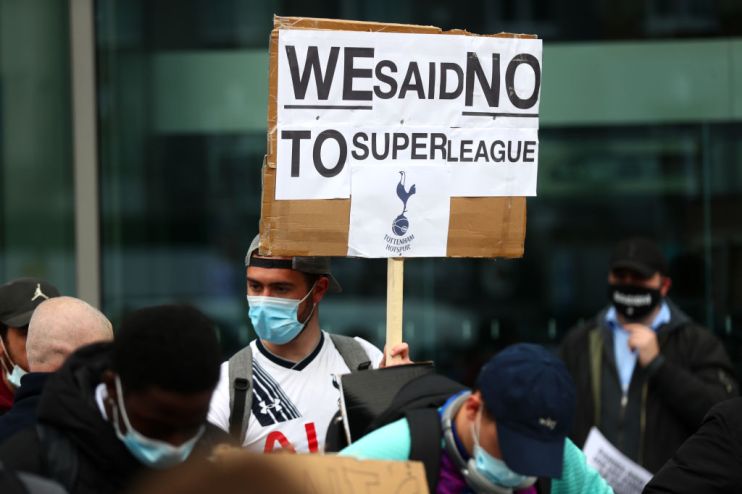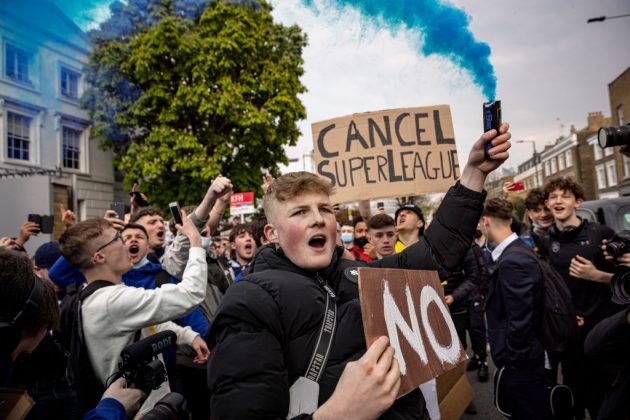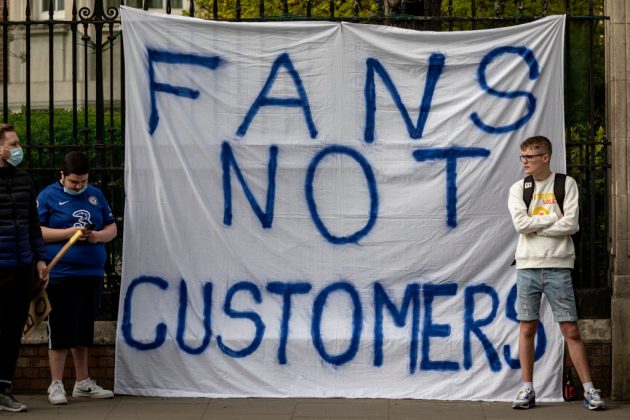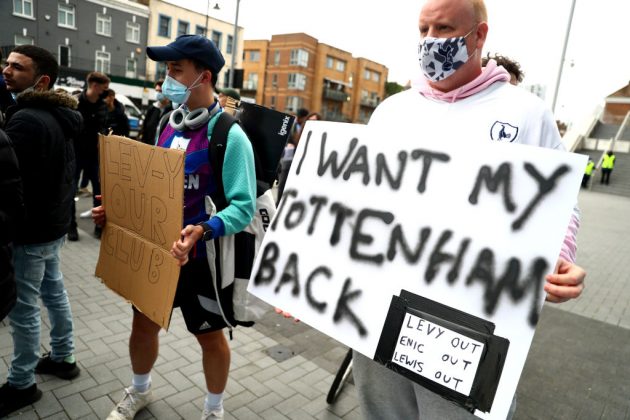European Super League fallout: Tottenham fans’ group calls for radical shake-up of football club ownership

Club executives involved in the failed European Super League were forced to resign from advisory roles at the Premier League this week.
The move was a consequence of England’s so-called ‘Big Six’ – Arsenal, Chelsea, Liverpool, Manchester City, Manchester United and Tottenham Hotspur – agreeing to join a new breakaway competition which collapsed under the weight of unrelenting anger throughout the footballing world.
To stop this happening again, fans are calling for fundamental change to ensure the fight against imposters in football is more than knee-jerk.

You cannot knock the pessimism. Martin Cloake, co-chair of the Tottenham Hotspur Supporters’ Trust (THST), recalls meeting with the Labour government as far back as 1997 to champion the need for fan input in club decisions.
However, events of the last fortnight have re-energised fans. Suddenly, a moment of opportunity has presented itself. “We are discussing things which we never thought we would be able to talk about back then,” Cloake said.
“These are conversations we used to have at the bar, but now this stuff is possible. We have found ourselves at this stage because of the huge business mistakes that have been made in the game.”
What do supporters want?
Football has been a business since Victorian times. Supporters’ groups, more than anyone, know that nobody will simply walk away from an investment.
THST has put forward a model for clubs that is centred around a supervisory board with non-executive directors.
They want representatives to be nominated by and accountable to constituencies within the club, such as season ticket holders, supporters’ groups and overseas fans.
This approach would contain several ‘‘red lines’’ that the club’s main board would not be allowed to change without approval from the supervisory board, protecting sacred features such as club crests and colours, as well as shielding ticket prices.

“We need to change the situation where football clubs are seen merely as investment vehicles to generate money. They are more than just businesses,” Cloake said.
“There is a consensus across the game that having one single owner who is able to act as they please with no accountability is not the way forward for football.”
Further north, the Manchester United Supporters’ Trust has urged the club’s owners to convert all equity ownership into one class of shares to enable a one share, one vote policy.
They want the Glazer family, which majority owns United, to sell its stake down to a maximum of 49.9 per cent, mirroring a German model that prevents commercial forces from running riot.
What is at stake?
Katrina Law, co-chair at THST, said that owners will find themselves “bang in trouble” if they do not listen to fans.
“Without change, we are running the risk of clubs being completely unmanageable because you do not have the consent of supporters. You will end up with total anarchy.”
Law added that the secretive way in which the Big Six operated during European Super League negotiations could kill the trust between the 20 Premier League clubs, who also help to fund teams lower down the English football pyramid.
“Business is about building relationships. How can the other 14 clubs sit in a room and have an honest conversation with people that were supposed to be their business partners?
“If the same owners and boards are in charge, and the same executives are making the decisions, this will happen again. We cannot have that.”

Dan Silver, board member of the Chelsea Supporters’ Trust, is also calling for change. He said that fans cannot continue to be punished for the actions of the board.
“In any other industry, heads would have rolled at a huge error of judgement like this,” said Silver.
“The owners of football clubs will never have the emotional involvement that the supporters do. To them, it is just running a business. But they should be very wary of supporter power moving forward.”